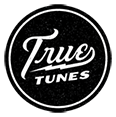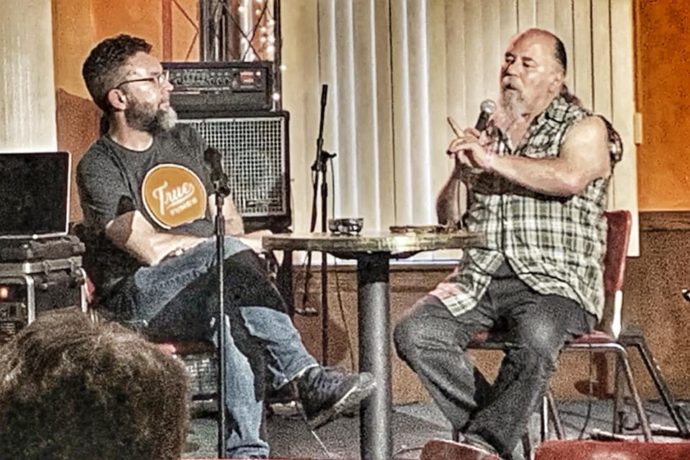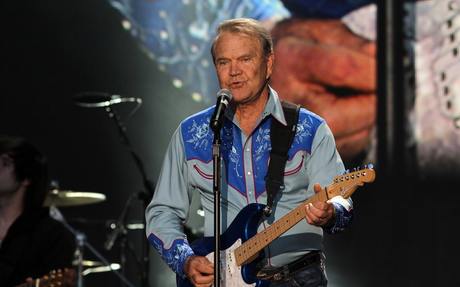Many people are really upset at Bob Dylan’s Super Bowl ad for Chrysler. Really upset. True believers sound heartbroken; their icon tarnished by commercialism, notwithstanding the fact that Dylan has been allowing his songs, his image, and his voice, to sell things for over a decade now. The times went and changed.
The mythical line between pop music and commercial culture has been obliterated. Heck, Bank of America just gave $3 million to Bono’s anti-AIDS charity RED in thanks for U2 giving free downloads of their new song “Invisible” during the game through iTunes. It was a four-way, win-win-win-win that allowed one of the most hated banks to bask in the feel-good “right thing” tent that Bono presides over with absolute impunity. He has demonstrated a strong pragmatic streak throughout his career that allowed some amazing “good” to happen by fostering the cooperation of unlikely bedfellows. The result? I didn’t hear a single complaint – in fact I only heard admiration – for the fact that U2 leveraged their credibility and RED’s mission in a way that served as a marketing plug for Big Banking and iTunes. But “Dylan selling cars?!” everyone kavetched, “Oh the horror!”
Hang around enough music industry events and you’ll hear the mantra over and over again. “Advertising is the new radio.” It’s often the only way to cut through the noise. We all live in crevices these days. It takes a moment like The Big Game for so many of us to see and hear the same thing at the same time. Artists interested in moving the cultural needle are pretty much forced to do commercials. Those who are happy to remain in complete possession of their artistic integrity are certainly welcome to. Many of them have a strong enough niche – or are so closely identified with values that fly in the face of modern industrialism – that they would lose too much cred with their base if they were to take a corporate offer such as these. Others, like Neil Young, seem genuinely repulsed by the idea of allowing their music to be used to sell anything other than their own records and T-shirts. When people like Young, or Mumford and Sons, refuse to allow their songs to be used the music industry quickly comes up with sound-alikes anyway. I have total respect for any artist that refuses cash in exchange for what they feel is their artistic integrity. But when artists like U2, or Dylan, do choose to engage that platform, it seems a bit duplicitous for anyone but the Amish, or Neil Young, to complain too loudly.
Besides, maybe no one has been as subversive in the process as Dylan. Or maybe I just want to believe that he is being subversive and has not, in fact, been subverted.
The thing about Dylan is that for many people he represents much more than he actually is, or ever was. The morning after the Super Bowl a thought hit me. Whatever box I try to put him in, Bob Dylan pees all over it and then blames me for the stink. And he’s right. It’s my fault. Catching something doesn’t make it your pet. First he was the voice of the beat generation, then the hippies, then the Jesus freaks.
Dylan takes the defiant and observational spirit of folk music, the lift of Gospel, the grit of the blues and the sex appeal of rock and roll and runs it all through the sausage grinder of 20th Century Commercial Americana. Out the other end comes music that is simultaneously escapist, oblique, challenging, indecipherable, psalmic and brash. I am increasingly realizing that what I get out of Dylan is usually what I bring to him. He holds up a warped and cracked mirror that we see ourselves in. We’re mad at him for selling cars, but we all drive them, right? He betrays our hypocrisy.
Dylan has never wanted to be our conscience. He never asked to be a shaman or a priest. Just like one of his heroes, Pete Seeger, he wanted to tell stories that meant something. Early on, those stories and their meanings were as crystal clear as Seeger’s. As he progressed, however, he became more nuanced; more subtle. Eventually he became cryptic. Every so often he let it fly, like on the journalistic story-song “The Hurricane” or his confrontational and evangelistic Christian songs, but more often than not Dylan’s message has been as veiled and distorted as his voice. He is all those other things because we make him into them. Under it all he is a songwriter and a singer exploring deep shadows with a candle. That’s it. That’s enough.
I’ll admit that when Dylan made the Victoria’s Secret ad a decade ago I was ticked off. It was creepy. It was crass. It felt like a sell-out that was completely incongruous with any shred of Jesus-ness. Then it occurred to me that maybe, just maybe, that was the point. Maybe he was pulling off the greatest subversion ever; using a corporation’s cash and platform to mock them. Certain he knew how creepy it would all be, right? We are all indignant that our hero had stooped to such depths, but we were the ones watching.
So this latest feature-length-ad for Chrysler – one that follows in the tradition established by Clint Eastwood and Eminem, puts Bob Dylan, the prince of cool, into an American made car as he cruises the streets of Detroit, soars though a cloud of images from the rock and roll era, and riffs poetic on America. He rattles off thought after thought – sounding like an audio essay from his Theme Time Radio Hour more than an ad – about the pop culture legacy of America; cars, rock and roll, Hollywood, factories… He’s right, of course. America’s legacy – at least the shiny one – is everything “cool.” We gave the world rock and roll, movies, and cars. Notice that the footage all has a certain patina to it. It’s the Instagramization of the American Dream. A highly curated and romanticized, zit-free, jingoistic pastiche of vapid icons and talk about how American this Italian owned company is. It’s hilarious, actually. “You can’t import cool,” he says. Right.
Through all the sentimental hogwash, though, are images of real American workers; normal folks on the line – the same folks that form a line behind Dylan in the ad’s final shot – as he plays pool. Was the stuff about letting Germany make our beer, and Switzerland our watches really a slam – or an observation? Chrysler – this icon of Americana – is not technically American anymore, but the workers are. Is Bobby slow-jamming globalism? Am I reading too much into this? Wouldn’t be the first time.
America is the merch table of the world. Our military is astonishing, to be sure, but our real power in the world lies in our insatiable ability to consume. If that ever changes, heaven help us! But really, “let Germany brew your beer?” Did anyone else catch that little dig juxtaposed against all that Budweiser propaganda? “The King of Beers” marketed itself throughout the game with anything BUT their beer. They exploited a soldier returning from service and then, proving their crass commercialism knows no bounds, they exploited the undying friendship of a puppy and a Clydesdale, appealing to, and manipulating, America’s emotions – in order to shill more of their massive, foreign-owned, corporate beer. And Dylan has the cajones to suggest that beer is essentially German? Come on. – that’s hilarious! (By the way, Budweiser is now owned by the Belgian brewing behemoth InBev if you’re keeping score at home.)
What is undeniable is that an old folk singer is still able to upset people. As we mourn the loss of Seeger – a man that never played with irony for a moment in his life – I am struck anew with the thought that this generation is leaving us. As Bruno Mars bounced around the stage – doing his best James Brown imitation and wearing an Elvis suit and hairdo, and the backing band mimed along (including those bastions of artistic integrity, The Red Hot Chili Peppers,) it only reinforced that today’s young artists can only seem to channel greatness, or imitate it. The legends are heading for the exits – some critiquing monolithic infrastructure that allowed them to rise to such prominence in the first place as they cash their checks. If you’re looking for defiance, credibility, social commentary, or justice, why the heck are you looking for it at the Super Bowl? That’s like looking for marriage counseling on The Bachelor.
The Super Bowl is our annual, international, consumerist church service. As such it is a valuable place to engage our culture as it is. “When in Rome…” and all. The danger is when those of us who answer to a higher authority get too taken in by the theatrics of this coliseum.
Goodnight, Pete. I sure hope to see you again. And Bobby, thanks for peeing all over my box once again. Long may you run.





